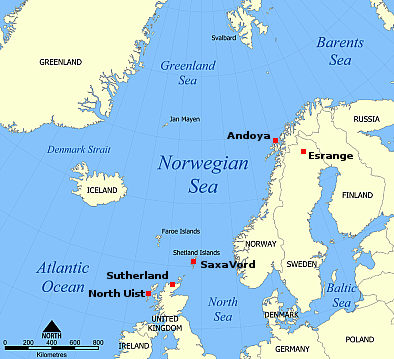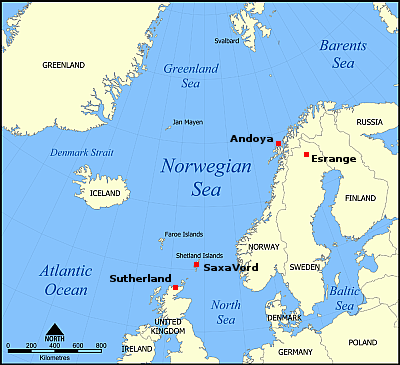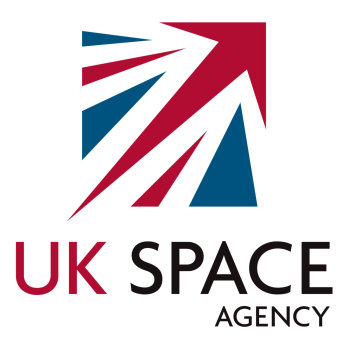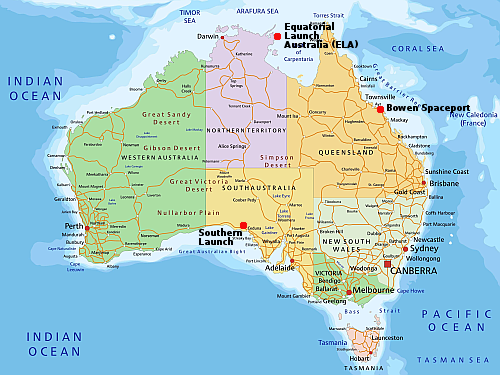A UK law professor and news outlet prove the UK is not the place to launch rockets
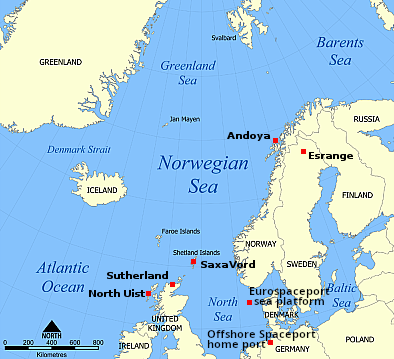
Proposed or active spaceports in North Europe
If I had any remaining hopes that the United Kingdom might finally begin to reform its Byzantine space regulations that bankrupted one rocket company and has blocked any launches from its proposed spaceports for almost a decade — allowing other spaceports in Europe to attract rocket companies and leap ahead — those hopes vanished in reading an article in the Shetland Times today, in which a professor specializing in UK space law described its red tape as “very good,” drawing “on best practice from other industries and jurisdictions.”
Alexander Simmonds of the University of Dundee says a balance should be struck to avoid launch operators being put off by strict regulatory requirements. The lecturer in space law and writer behind The Space Legislation of the United Kingdom says UK regulation of the space industry is “very good” and draws on best practice from other industries and jurisdictions.
Licences are in place for SaxaVord to host the first vertical satelite launch in 2026, and Dr Simmonds says operators have taken responsibilities “very seriously”. But he fears future operators could look elsewhere if compliance becomes too much of a problem and more cost-effective alternatives are available.
“My own view is we’re in a very good place at the moment, as regards to regulation,” Dr Simmonds told The Shetland Times. “I think that the legilsators have been cautious with this and have been very entitled to be, given the nature of what we are dealing with.”
Both this so-called expert and the journalist interviewing him appear entirely ignorant about the history of past decade. While red tape in the UK has blocked or seriously delayed launches, rocket startups have “looked elsewhere,” signing deals and launching from Norway’s long established Andoya spaceport that has now gone commercial with enthusiastic government support. At the same time, new spaceport projects have begun at three other locations, all of which appear to also have support from their local governments in Sweden and Germany. While the UK government has choked off business, the governments at these other spaceports have moved aggressively to ease regulation.
The cluelessness of both Simmonds and the Shetland Times reporter indicates there is absolutely no urgency in the UK to fix things, and in fact it appears they aren’t even aware their emperor is wearing no clothes.

Proposed or active spaceports in North Europe
If I had any remaining hopes that the United Kingdom might finally begin to reform its Byzantine space regulations that bankrupted one rocket company and has blocked any launches from its proposed spaceports for almost a decade — allowing other spaceports in Europe to attract rocket companies and leap ahead — those hopes vanished in reading an article in the Shetland Times today, in which a professor specializing in UK space law described its red tape as “very good,” drawing “on best practice from other industries and jurisdictions.”
Alexander Simmonds of the University of Dundee says a balance should be struck to avoid launch operators being put off by strict regulatory requirements. The lecturer in space law and writer behind The Space Legislation of the United Kingdom says UK regulation of the space industry is “very good” and draws on best practice from other industries and jurisdictions.
Licences are in place for SaxaVord to host the first vertical satelite launch in 2026, and Dr Simmonds says operators have taken responsibilities “very seriously”. But he fears future operators could look elsewhere if compliance becomes too much of a problem and more cost-effective alternatives are available.
“My own view is we’re in a very good place at the moment, as regards to regulation,” Dr Simmonds told The Shetland Times. “I think that the legilsators have been cautious with this and have been very entitled to be, given the nature of what we are dealing with.”
Both this so-called expert and the journalist interviewing him appear entirely ignorant about the history of past decade. While red tape in the UK has blocked or seriously delayed launches, rocket startups have “looked elsewhere,” signing deals and launching from Norway’s long established Andoya spaceport that has now gone commercial with enthusiastic government support. At the same time, new spaceport projects have begun at three other locations, all of which appear to also have support from their local governments in Sweden and Germany. While the UK government has choked off business, the governments at these other spaceports have moved aggressively to ease regulation.
The cluelessness of both Simmonds and the Shetland Times reporter indicates there is absolutely no urgency in the UK to fix things, and in fact it appears they aren’t even aware their emperor is wearing no clothes.

